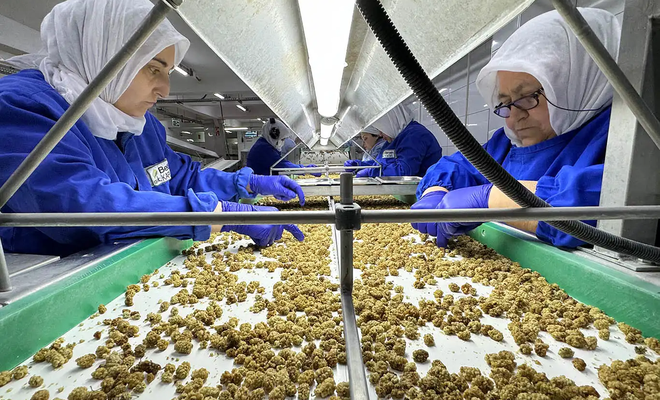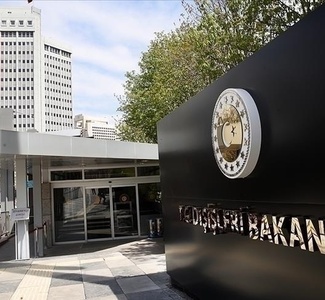Türkiye harvests green gold: Aiming for $1.5 billion in organic exports
Türkiye has surpassed the annual export threshold of $1 billion in organic certified products, marking a significant milestone in its agricultural sector.

 Google News'te Doğruhaber'e abone olun.
Google News'te Doğruhaber'e abone olun. With a production volume of 1.6 million tonnes across 268 different organic products, including dry, fresh, and frozen fruits, as well as cotton, the country has emerged as a key player in the global organic market.
The rise in organic exports reflects Türkiye's commitment to green agriculture and sustainable practices, with approximately 53 thousand organic farmers contributing to the production of organic goods on 311 thousand hectares of land. The nation ranks fourth in Europe in terms of organic farming, showcasing its growing influence in the sector.
But ambitions transcend geographical rankings. With an eye on the future, Türkiye is strategically leveraging international trends. As countries like the EU, US, and the Far East prioritize expanding their organic sectors, Turkish exporters are sharpening their blades for global competition. Participation in the BioFach Fair, the world's largest gathering dedicated to organic products, held in Nuremberg, Germany, exemplifies this proactive approach. Here, 37 Turkish companies will showcase their wares, forging new connections and solidifying their presence in the burgeoning green market.
The Aegean Region shines as the crown jewel of Turkish organic exports, contributing a remarkable 75% to the national tally. Mehmet Ali Işık, Chairman of the Aegean Dried Fruits and Products Exporters' Association, emphasizes the historical roots of this success, tracing it back to the pioneering steps taken in the 1980s with dried fruits. Today, the story has blossomed into a diverse bouquet, encompassing frozen fruits and vegetables, cherries, hazelnuts, and a multitude of other products.
"We are leaders in both production and export of grapes, figs, and apricots," declares Işık, his voice brimming with pride. "We have 268 types of products, and we're constantly adding more diversity, like oilseeds, olive oils, and grains." But numbers tell only part of the story. The true value lies in the premium quality and unique characteristics of Turkish organic offerings. Işık asserts, "These products aren't grown in this quality anywhere else in the world."
Looking beyond national borders, Türkiye sees an opportunity to leverage the transformative "Green Agreement" recently implemented by the EU. This ambitious initiative aims to increase the share of organic products in agricultural production to a staggering 25-30%, allocating 60% of the agricultural budget to support this shift. For Türkiye, this translates to a vast and fertile market waiting to be cultivated.
However, Işık acknowledges the need for more than just international tailwinds. Domestic awareness and affordability are crucial ingredients for sustainable growth. He explains, "Consumers need to understand that the price of organic products reflects their true production value. It's an investment in health and sustainability."
The path forward requires a multi-pronged approach. Basin-based production models are seen as key to unlocking further potential. Işık envisions, "By integrating land and prioritizing basin-based production, we can increase the share of organic agriculture to 20% by 2030." Consumer education and affordability initiatives are also highlighted as crucial levers for fostering a robust domestic market.
So, what lies ahead for Türkiye's organic journey? With its fertile lands, skilled farmers, and ambitious vision, the country is poised to reap the rewards of the green revolution. The $1.5 billion target is not just a number; it's a symbol of Türkiye's commitment to sustainable agriculture, healthy living, and a thriving future on the global stage. The world waits with anticipation to see how this story unfolds, one organic seed at a time. (ILKHA)



















































